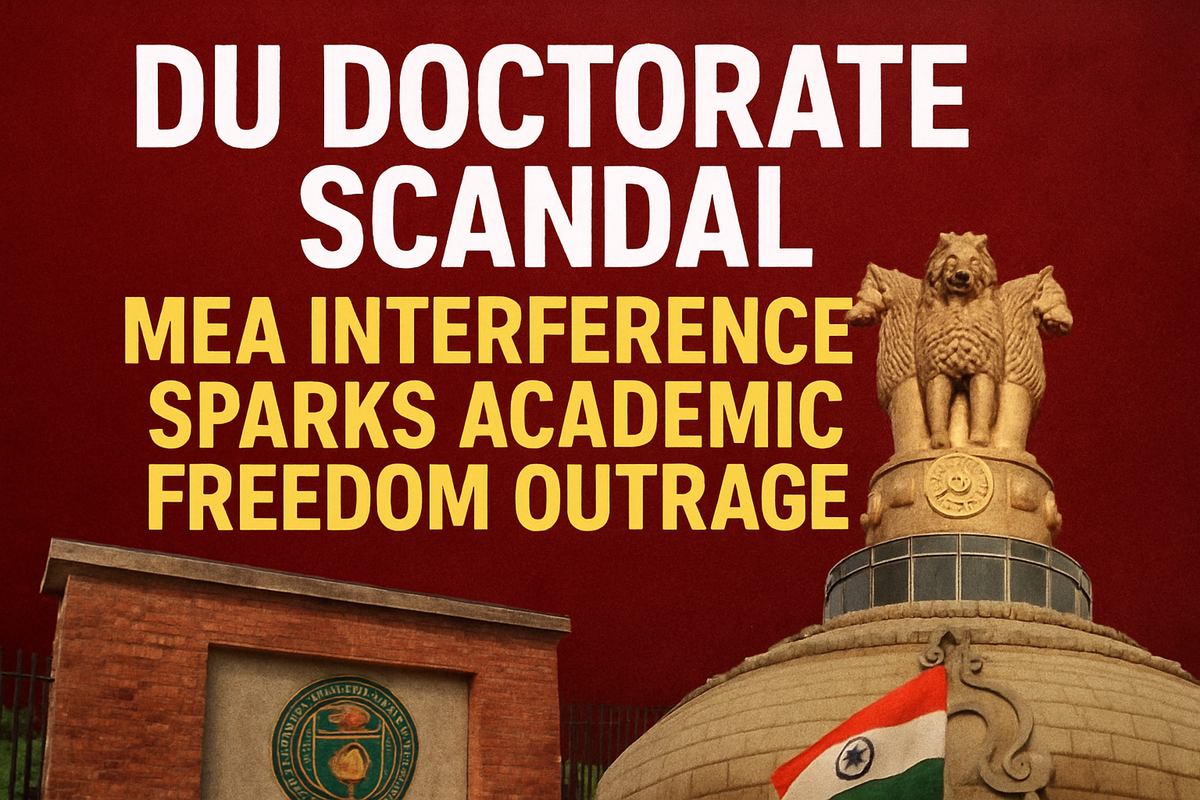DU Doctorate for Sri Lankan PM Ignites Scandal Over Alleged Political Interference
Critics charge the Ministry of External Affairs compromised the university's autonomy, pointing to a pattern of suppressing academic freedom.
NEW DELHI, India – September 14, 2025 –

A firestorm of controversy has engulfed Delhi University over its decision to confer an honorary doctorate upon Sri Lankan Prime Minister Dr. Harini Amarasuriya, following revelations that the award was initiated not by the university, but at the behest of India’s Ministry of External Affairs. The move has been slammed by critics as a blatant act of political influence peddling that undermines the institution's academic integrity and autonomy.
The scandal erupted after official documents, first reported by The Indian Express, showed that a September 8 university notice called for an Academic Council meeting to specifically consider “a letter from the Ministry of External Affairs” requesting a special convocation for Dr. Amarasuriya during her planned visit in mid-October. This external directive has led to sharp condemnation, with one international critique in The Wire labeling the move an example of "hegemonic politics" and the "creation of obligatory relationships."
A Pattern of Political Interference
Critics argue this incident is not an isolated event but part of a troubling pattern of eroding academic freedom at the premier institution. The controversy is being viewed alongside the university administration's recent actions against its own faculty and curriculum.
Most notable is the case of Professor Apoorvanand from the Hindi Department, the senior-most faculty member who was passed over for the Head of Department position, a move many see as retribution for his ideological stance. In a widely criticized act of censorship, Professor Apoorvanand was also denied permission to travel for an academic lecture in the U.S. unless he submitted his speech for prior government approval.
Campus on Edge: Elections Under Heavy Guard
The climate of authoritarianism, critics say, is reflected in the current Delhi University Students' Union (DUSU) elections. Ahead of the September 18 polls, the campus has been transformed into a veritable fortress, with over 175 police and paramilitary personnel deployed.
"This hardly feels like student elections, and has the full-fledged vibe of some political state elections."
The election process itself has come under judicial scrutiny. The Delhi High Court found a "prima facie violation of anti-defacement guidelines," stating that the material brought before it was a "telling story as to how these contestants are violating all settled norms of conduct." Furthermore, the university's decision to impose a Rs 1 lakh surety bond for candidates has sparked widespread protests for creating a financial barrier that "bars ordinary students from contesting."
Reputation at Stake
As Delhi University prepares for Dr. Amarasuriya's visit in October, it faces a profound crisis of credibility. The confluence of alleged government puppeteering, faculty intimidation, curriculum censorship, and the heavy-handed management of student elections has put its international academic reputation on the line. The coming weeks will be critical in determining whether the university can reclaim its legacy of independent scholarly pursuit or will further cement its transformation into a politically controlled institution.
Comments
Post a Comment